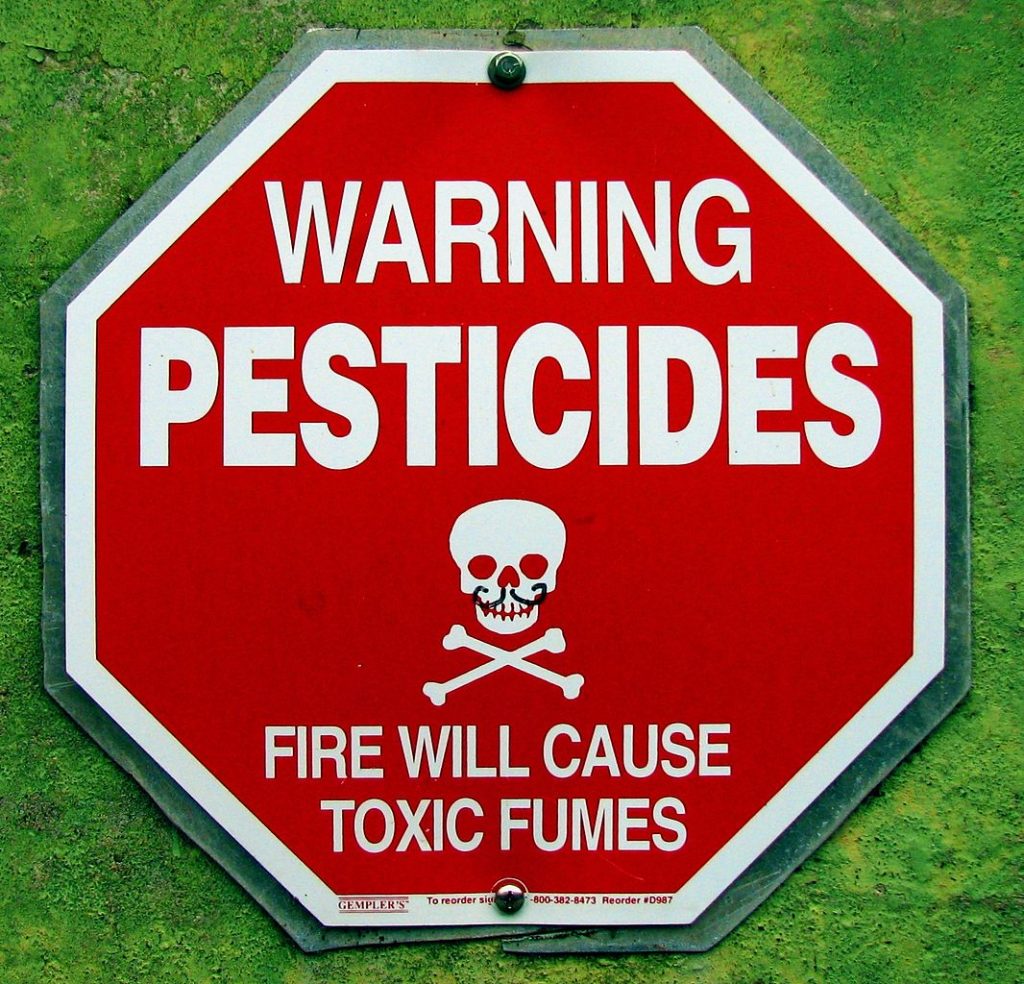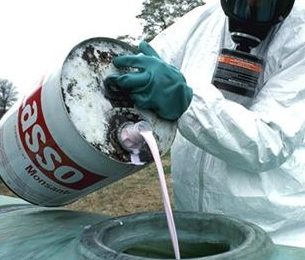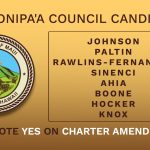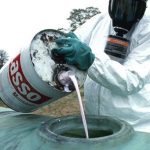The 2017 Hawaii State Legislature deserves an “F” for failing to regulate in any way whatsoever Hawaii’s largest users of Restricted Use Pesticides (RUP).
Most egregiously they failed to step up and ban chlorpyrifos, a known neurotoxin used widely to kill insects on the genetically engineered cornfields located on Molokai, Kauai, Maui, and the north shore of Oahu.
According to research conducted by the Environmental Protection Agency (EPA), the lack of action by Hawaii’s legislature could have negative impacts on the learning development of newborn children living in areas adjacent to the fields where chlorpyrifos is sprayed.
There is no safe level of chlorpyrifos for the developing fetus. The EPA has already banned its use in homes and was moving forward to ban its use on food crops until the new Director of the EPA, Scott Pruitt, stepped in to reverse his own agencies recommendation.
The Washington Post reported the EPA cited, “…mounting scientific evidence that prenatal exposure can pose risks to fetal brain and nervous system development.”
Chlorpyrifos is used by the ton in Hawaii’s islands. In January of 2016, Syngenta workers on Kauai were hospitalized after being exposed to this deadly chemical resulting in a $4.8 million civil action against the company by the EPA. Chlorpyrifos was being sprayed in the fields directly next to the Waimea Canyon Middle School the day the kids got sick. It has been detected in Hawaii’s air and water, and bee hives.
If they really wanted to, the Hawaii legislature and/or the Department of Agriculture could ban chlorpyrifos, but of course they absolutely will not.
On April 2nd a Honolulu Star-Advertiser headline read “Push to ban insecticide builds at Legislature.” Rep. Chris Lee Chair of the House Energy and Environmental Protection Committee is quoted as saying “We have an obligation as elected officials at the state level to take action to protect our people when the federal government won’t.”
Senator Mike Gabbard Chair of the Senate Agriculture Committee said, according to the newspaper article, “that he would support an effort to ban chlorpyrifos.” The article further reports that even the State
of Hawaii Director of Agriculture, Scott Enright, was jumping on the ban chlorpyrifos bandwagon and now also supports banning this nasty neurotoxin.
Representative Richard Creagan, Chair of the House Agriculture Committee, was more candid saying: “As much as I would like to ban chlorpyrifos this year, I don’t anticipate that happening.” He called the EPA decision not to ban this restricted use pesticide “egregious.”
Key committee chairmen in both the House and the Senate, plus the Director of Agriculture all support the banning of chlorpyrifos, but yet nothing happens.
Multiple sources at the Capitol point the finger of blame to Representative Lynn DeCoite (who represents East Maui, Moloka’i and Lana’i ) and Kauai West-Side Representative Dee Morikawa as the key reason the chemical companies have prevailed in the House.
Both have close ties to the industry with DeCoite actually doing contract work with Monsanto, and Morikawa representing the area where a majority of the industry is based on Kauai. Back channels on the third and fourth floor of the big square building on Oahu say these two Rep’s are the loudest and most persistent voices carrying water for the chemical industry.
A deeper dive into the politics and machinations of how the back rooms at the Capitol operate however tells a different story. Those who understand how things really work will acknowledge that it is the Leadership in the House and the Senate who are responsible for the continuing failure of virtually any regulation of the chemical industry to pass into law.
Rep. DeCoite and Rep. Morikawa serve leadership (either willingly or unknowingly) in the highly visible and very valuable role of the “whipping boy”, but they do not control the outcomes.
Rep.’s DeCoite and Morikawa are simply not that powerful.
If House Finance Chair Sylvia Luke (Nuuanu-Pauoa-Pacific Heights-Papakolea-Punchbowl) or Speaker of the House Joe Souki (Kahakuloa, Waihee, Waiehu, Puuohala, Wailuku, and Waikapu) wanted to ban chlorpyrifos it would happen today.
If Senate President Ron Kouchi, who represents Kauai, wanted to increase regulation on the chemical companies based in his district, likewise it would happen.
If leadership in the House or Senate wanted something to happen, they can wheel and deal and make it happen. This is what they do. Leadership holds all the chips. In both the House and the Senate, money committee chairs control not only the budget, but also which bills pass into law and which do not.
At the Hawaii legislature it is common practice that important public interest measures are killed behind closed doors, often in the quiet of the night and without fingerprints or accountability. No hearing is held, no vote is taken and while fingers are occasionally pointed, no real explanation is given.
While we focus our attention beating up on the “whipping boys” the real culprits remain politically unscathed. How can we have a democracy that inspires faith and confidence in our system of governance without transparency and accountability by those who are in charge?
Due to the inaction of leadership in the House and Senate, the neurotoxin chlorpyrifos will continue to be used in the coming year in large amounts on our islands.
The formulaic response from leadership as to why they failed us will be something like, “we didn’t have the votes,” or “it was a bad bill,” or “we missed the deadline.”
But the truth is that the driving force preventing passage of any new regulation is the corporate power and influence of the four giant chemical companies that actually make, sell and use the vast majority of chlorpyrifos in Hawaii – Dow AgroScience, Syngenta, DuPont Pioneer and Monsanto.
If House and Senate leadership wanted to ban chlorpyrifos, “a good bill and the votes to pass it” would be found and any pesky deadlines or rules standing in the way would be amended as is done countless times for other important measures.





































